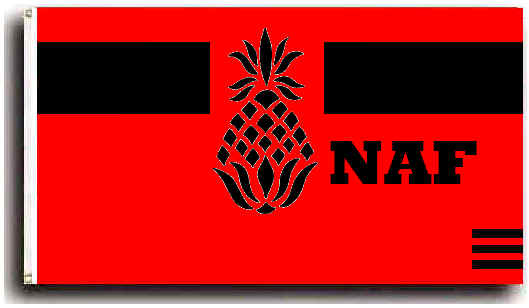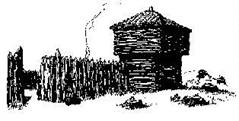
BILL CUNNINGHAM
Staff Writer
|
SMOKE SIGNALS ___________________________ TALKING LIKE A MOUNTAIN MAN By Bill Cunningham Visit most modern rendezvous or other gatherings of mountain men or reenactors and while you are there you will likely hear someone talking in an idiom they believe to be the way the original mountain men talked.. To a lot of folks who have done their research it sounds phony and out of place, more like little children playing mountain man and Indians than authentic. It reminds one of someone who has never been in a saloon trying to act like an inebriate. They just can’t pull it off in a convincing manner. Where all the idea that mountain men talked in a near unintelligible patois comes from is not clear, but there is reason to believe it was originally fostered by George Frederick Ruxton .in his novel, Life in the Far West. Evidently in an attempt to capture the cadences of speech and the accents of each individual, Ruxton was quite ingenious. And he managed to work in slang as everyday usage. He influenced many writers who came after. Motion pictures and television were in turn also guilty of perpetrating the myth that the trappers talked this way. There were many men of many trades and backgrounds involved in the fur trade. It is important to keep in mind that they did not call themselves nor each other “mountain men.” When they did refer to themselves with the name of a trade they most often used the term “mountaineers” or “trapper,” “hunter,” or even “trader.” And only a relative handful remained in the far west after their contracts (one year seemingly the regular one) expired. The mountain men—as they are usually called today—did not customarily travel to the mountains and prairies by themselves, but were members of fur brigades, each hired to do a specific job. Those brigades were composed of men from many geographic areas and of differing backgrounds and ages. (I’ve read of a brigade that was composed of men from the ages of sixteen to seventy years). Some came from the south, some from eastern cities, some from as far north as Maine (Osborne Russell) and there were not a few even from as far away as Hawaii. Antoine Clement was a half-breed—half white Canadian and half Indian—and there are many accounts of Indians involved as brigade members, especially Delawares. With such a variety of backgrounds, imagine the varieties of accents involved! Not all the people in the brigades were trappers, either. To maintain a profitable venture, there were many different jobs to be performed. Camp tenders were required to support the actual trapping. Occupations such as blacksmiths, cooks, hunters, teamsters, and the men who hooped, scraped, and salted the hides, all had descriptive terms for the jobs they did Appellative terms naturally found their way into the language but as clarifications, not as changes for common usage or corruptions. Brigade employees were for the most part poorly educated at the best, and their terms could be inventive and differed in pronunciation and spelling from individual to individual, depending upon where they came from. Even in his days as military commander, the very well known Kit Carson could barely write and for formal reports he usually had to have a scribe to do it for him. The near Middle-English of the north east was very different from the soft accents of the south. The inventive spelling that is found in the journals of Lewis and Clark did not disappear at the advent of the fur trade. Journals such as those of David Adams are filled with words spelled in wild abandon: tuck for took, a buv for above, sow for so, trid for tried, litl for little and so on. But despite the spelling, one can work out that the writer had a good vocabulary and was merely trying to spell the words the way they sounded to him. Regional dialects differed from man to man and therefore did not form a new common dialect within brigades. Trappers who remained in the west for long periods of time were not hermits. They often congregated in winter camps or from time to time traveled to such places as Taos, California, and Oregon where they sometimes picked up words from the local vocabularies or languages. Despite their time in the field they did not attend every Rocky Mountain rendezvous nor did they necessarily “blow in” all their earnings in annual Bacchanalian drunks. And they did not speak like the mountain men are often portrayed in novels and movies. People generally write close to the way they speak. A reading of diaries and journals from the men who populated the west of the fur trade provide a clear understanding of the language they used from day to day. Those sources do not support the modern concept of corrupted English many suppose the mountaineers used. Bill Cunningham
___________________________ Page 6
|


 come warm yourself friends
come warm yourself friends